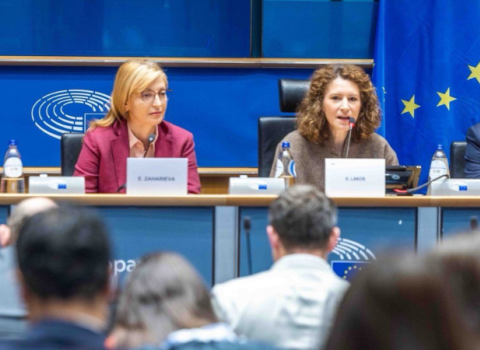The importance of Arctic methane emissions for the climate, how matter is formed and broken down, evolutionary shifts in the plant kingdom, and new effective methods for producing bioactive substances that will meet future needs for medicines and advanced electronics. These are just a few examples of basic research at Stockholm University that has received funding from the Knut and Alice Wallenberg Foundation.
”It is fantastic that Stockholm University has received a record number of project grants from the Foundation this year,” says Lena Mäler, Deputy vice president for science at Stockholm University.
Future scientific breakthroughs
Each year, the Knut and Alice Wallenberg Foundation awards research grants in the fields of medicine, science and technology to research projects that are judged to have such high scientific potential that they have the potential to lead to future scientific breakthroughs. Each project is evaluated by a group of international experts in the respective field.
This year's research projects at Stockholm University are in marine micropaleontology, atomic, molecular and optical physics, organic chemistry, astrophysics, evolutionary genomics and environmental science.
Proof of quality
”It is particularly pleasing that the grants span all of our research environments and that all sections in the natural sciences have been awarded grants. We see this as evidence that the university's work with applications is paying off, but above all that the research in natural sciences at Stockholm University is of a very high quality,” says Lena Mäler.
Read articles about the research projects
New method for asymmetric catalysis paves the way for the materials and drugs of the future Kálmán J. Szabó, professor at the Department of organic chemistry
Making and breaking molecular bonds - in space and in the laboratory Henning Schmidt, professor of atomic physics at the Department of physics
Inflow of Atlantic water into the Arctic threatens Greenland's ice Helen Coxall, professor of marine micropaleontology at the Department of geological sciences
They investigate the risk of increasing methane emissions from shallow Arctic waters Örjan Gustafsson, professor of biogeochemistry at the Department of environmental science and the Bolin centre for climate research
How do evolutionary shifts reshape pollen evolution? Tanja Slotte, professor of ecological genomics at the Department of ecology, environment and plant sciences
The light of the first stars electrified the Universe Matthew Hayes, associate professor of astrophysics at the Department of astronomy
More researchers receiving funding
Mika Sipponen, Johan Carlström, Vladimir Krasnov and Andreas Rydh at Stockholm University are also co-applicants for two research projects at KTH that have received research funding:
Read more about the research projects
Fredrik Ronquist, professor at the Department of zoology, also receives research funding for the project ‘DarkTree: Charting the Dark Regions of the Insect Tree Using Computer Vision, Genomics, and Probabilistic Machine Learning’ at the Swedish Museum of Natural History.
Knut and Alice Wallenberg Foundation
Since 2011, when the Knut and Alice Wallenberg Foundation established the project grant scheme, until 2024, 303 projects with a total budget of SEK 8.3 billion have been granted.
Read more about the Knut and Alice Wallenberg Foundation
This article was first published on 17 October by Stockholm University.





 A unique international forum for public research organisations and companies to connect their external engagement with strategic interests around their R&D system.
A unique international forum for public research organisations and companies to connect their external engagement with strategic interests around their R&D system.